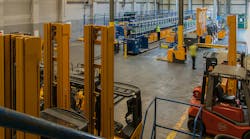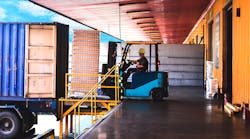The fact you’re reading this post rather than relying on some synthetic voice to blurt my words back at you makes me happy. It shows there are still critical thinkers out there who like the sound of their own internal voice—the one that can say “what B.S.” after recognizing a sentence as such and then quickly moving on to something else.
If I haven’t lost you yet, let’s see if this sentence will do it: Technology’s greatest blessings will end up cursing us if we let them.
Still there? Okay, here are some recent media snippets that explain this post’s rant against humanity’s evolution into technoslaves:
“A United Nations expert called for a global moratorium on the testing, production and use of armed robots that can select and kill targets without human command. ‘War without reflection is mechanical slaughter,’ said Christof Heyns, the United Nations special reporter on extrajudicial, summary or arbitrary executions.”—The New York Times
“The National Highway Traffic Safety Administration said states should require drivers of prototype self-driving cars to get extra training and special licenses to show they can safely operate the vehicles on public roads.”—The Wall Street Journal
“What if instead of playing "Call of Duty," my labor force in the low cost region played "Called to the Warehouse?" What if instead of navigating through buildings and hallways in the game, they navigated remotely through the warehouse and aisles? Instead of picking up new weapons and ammo, they picked up pallets and boxes. Instead of firing bullets, they entered data. And, what if all of their movements were communicated to robots and industrial trucks in far-away warehouses at the most economical locations to serve my markets? Remote driven, vision guided vehicles and robots may be in your future… warehouse gamers may be your future labor force. That's innovation by rule-breaking.”—Material Handling & Logistics, April 2013.
Understand, I’m pro-automation. But my concern is when a pro-automation attitude makes us trust automation. Technology should never be trusted, no matter how good it works. Lawyers understand that, which is why they always slap marketing writers on the back of the head when they produce a press release that states some new product is “safe.” They know such a claim is impossible to believe or to defend. Only the product’s operator can be safe by thinking and working safely.
I asked Mike Carlson, safety products marketing manager for Banner Engineering, makers of industrial sensors and wireless controllers, this question:
“It's said that the more protective and advanced the safety gear that football players wear, the less careful they are about not getting injured. Do you think the same applies to factory safety? The more devices and safeguarding equipment, the less careful workers are?”
His answer should inspire a fresh look at safety in your operations:
“There have been studies that show that injury rates are highest with new employees and with very long term employees. New employees that are still learning the job have a false sense of comfort resulting from lack of knowledge, which results in mistakes. Long term employees that are very comfortable with the hazardous working environment sometimes take short-cuts because they ‘know’ the machinery. These short-cuts, like not following lockout/tagout procedures, result in a rate of injuries that make the graph comparing years worked to injuries look like an inverse bell-curve.”
Familiarity does breed contempt. And contempt is a punishable offense.


